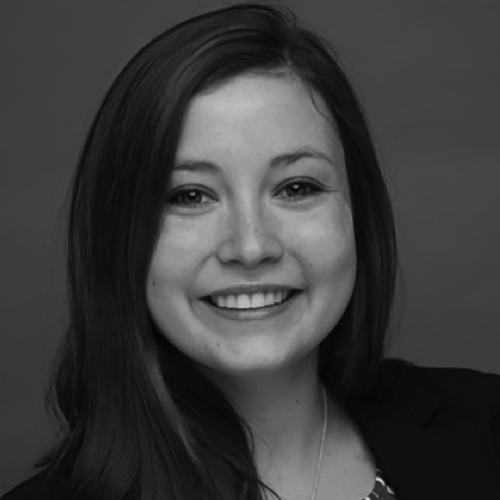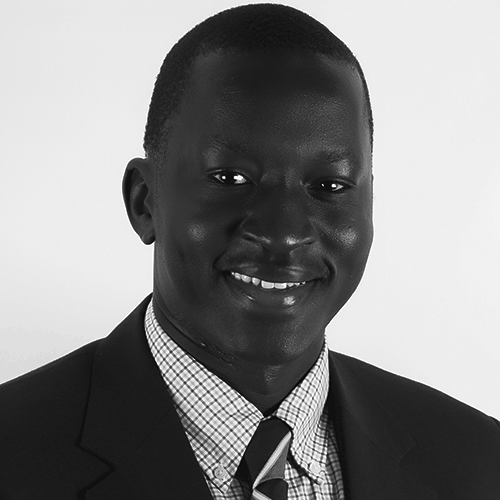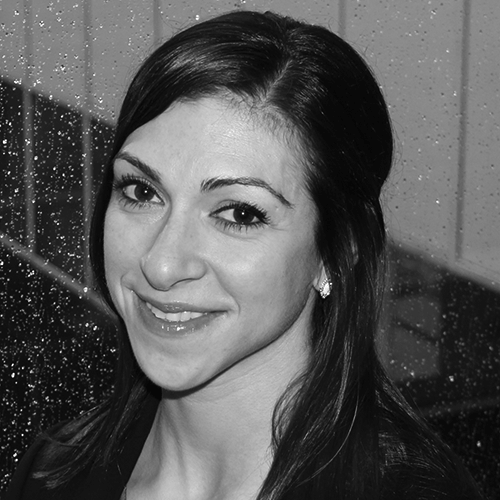We sat down with three students to talk law — covering everything from inspiration, education, opportunity and trajectory.

Emilie C. Schwarz
1L, Columbia Law School
When and why were you first inspired to pursue a career in law?
I was first inspired to pursue law school in college, when I took a graduate class called “Neuroscience and the Law.” I had been studying neuroscience prior to that course, but was fascinated by the ability to translate scientific principles into legal policy and practice. After college, I took a job at the New York State Attorney’s Office as a legal analyst to be sure that this was a career path I was interested in pursuing, and my experience there confirmed my interest.
With technology being incorporated into more aspects of education, what kind of changes are you seeing in the education method?
Honestly, I haven’t seen a significant change between college and law school thus far (I took two-and-a-half years off) with respect to the use of technology. Personally, I use e-book casebooks for all of my classes and take all of my notes on Google Drive and OneNote so that I only have to carry an iPad to campus — but that is not a widespread educational change.
However, I hope to see some courses integrate legal technology future discussions, where applicable. For example, many legal technology startups are now working to develop automated systems to help aid in certain legal areas and practices, including contract law, document review and intake. Even if it does not become the focus of certain courses, I think it would be meaningful for syllabi to address the new methods that future lawyers can employ to help make legal processes more efficient and less costly.
What about changes in the courses and programs offered?
As a 1L, my course load is fairly mapped out for me, so I haven’t been exposed to the variety of classes on offer yet. However, I have heard from my upperclass and L.L.M peers that there are some new courses cropping up that discuss the intersection of technology and the law, cybersecurity and lawyering in the Internet age. I hope to be able to take advantage of these courses before I graduate.
What opportunities are available in law school for gaining practical experience?
Currently, Columbia Law offers a lot of ways for students to gain practical experience working with clients and conducting legal research. The law school offers legal clinics, research assistant positions, pro bono opportunities through student organizations and externships with a multitude of organizations. Additionally, I am now working through the Columbia Law School Legal Technology Association to develop a voluntary research program with participating legal technology startups to help students get introduced to the emerging field. The goal would be to have partnering startups provide the association with projects that they could use assistance on, and then we pair interested students with the startups and help to manage the relationships. Ideally, this would also count towards the students’ pro bono hours requirement. We’ve been in touch with several legal technology startups that have a pro bono/public interest focus, and the responses have been really encouraging. We aim to have the program up and running by the Fall 2018 semester.
What path are you planning to head down after you graduate?
I haven’t fully decided on my post-graduate plans, but I believe I will work for a law firm for a few years and then decide what to do from there. I have always wanted to run for local office some day, and hope to pursue that goal eventually. While at a law firm, I would love to get involved with any technological innovation that is going on within and help drive the next generation of lawyering.

Gatluak Ramdiet
2L, University of Nebraska — Lincoln College of Law
When and why were you first inspired to pursue a career in law?
My passion for law and enthusiasm for the profession started inadvertently when I was about 12 years old. I spent a portion of my childhood in a United Nations-run refugee camp in western Ethiopia. As a kid, one of my favorite things to do was attend criminal trials and civil disputes which were often run by elders or individuals appointed to the position. None of the elders and individuals deciding these cases had any legal or relevant training, and yet they were incredibly efficient, competent and well-respected by the community. I was fascinated by the analysis and methods used in deciding these cases. I would sit quietly in admiration as parties pled, argued and sometimes even got physically aggressive towards each other, and, sometimes, toward the elders. In an environment where each individual is his or her own counsel, the ability to speak, and especially to be a persuasive speaker, determines one’s fate.
I remember this one particular case where a young man was accused of impregnating a girl. The young man, unfortunately, had some form of speech disorder. He looked confused, and extremely agitated when he was given his charges. The elders tried to connect the pieces from the rare instances where he managed to get a word out, but could not come to a conclusion on whether the young man was denying responsibility or denying to marry the girl. I was able to come to my own conclusion that he did not want to marry this girl. For the first time since I started attending these hearings, I spoke and tried to explain what the man was saying to the elders.
My attempt to help this man was swept aside because I was not allowed to speak; however, I was convinced that this man was not responsible for the offense. If only he had someone else to speak for him. Unfortunately, his inability to affectively advocate for himself was taken as a refusal to marry the girl and he was fined. I thought the law preventing others from speaking on this man’s behalf was ridiculous. I was outraged. That’s when I realized that I want to speak for those who cannot advocate for themselves.
With technology being incorporated into more aspects of education, what kind of changes are you seeing in the education method?
Technology has completely transformed the way in which students learn. I think one easy example is how students do research. Instead of spending days or weeks looking through books and often, irrelevant information, technology offers alternative ways to find the same information using less time. As a law student, time is precious, and so it is absolutely necessary to find ways to cut irrelevant information out of your research.
In addition, professors are now using things like polling software to assess whether students are learning the material. My civil procedure and constitutional law professors effectively used these tools for on-the-spot feedback, and as a law student, I appreciate learning if and why my responses are wrong before taking the actual exam.
Nebraska uses Canvas, a course management tool. Canvas is very user friendly and is a great course communication tool for professors and students. Professors use Canvas for all course-related resources, from assignments to class recordings. Our professors also use special software to record course lectures, meaning students no longer have to rely on other students for their notes if they miss class.
What about changes in the courses and programs offered?
Students are no longer passive learners, nor confined to classrooms. Students are able to take more control of how they access information.
Law schools are adapting to these changes and embracing the way students gather and process information. Nebraska College of Law’s curriculum, for instance, is designed to equip students with a wide array of skills to better prepare us for the profession. In addition to the skills being taught in the classroom, Nebraska has found a way to help students continue building additional skills outside the classroom. The Build Your Character program helps students identify skills areas, as well as showing us ways in which to turn those areas into strengths. The program also has a supporting mobile app, which is great. The app allows students to subscribe to skills, and to be notified of upcoming events that focus on that area. The app helps students find student organizations that provide opportunities to develop different skill areas and it also helps us tracks our skill development.
What opportunities are available in law school for gaining practical experience?
Nebraska College of Law provides many opportunities to gain practical experience. On top of everything else happening as a 1L, finding legal employment can be very frustrating. However, our career development office is great at helping connect students with local and national employers. I had an incredible opportunity to interview, and eventually work for, a public interest law firm this past summer. Not only was I able to enhance my legal research and writing skills, I also gained insights into public interest law as a potential area of interest. I am also hoping to get into one of the legal clinics next fall. Nebraska just opened a brand new legal clinic building which houses the College’s five legal clinics. This new building is amazing. Law students want to prepare for the job market and doing so while a student is difficult, but the legal clinic makes that easier. Serving real world clients and gaining hands-on experience at the clinic is a great way to stay ahead of the pack.
What path are you planning to head down after you graduate?
As a kid I used to dream about working for the United Nations, traveling the world and advocating for those displaced from their homes. For a kid living in a refugee camp, this was nothing more than a fantasy that was bound to fade with time. Fortunately, that fantasy turned into something attainable when I was resettled and moved to the United States. I took this opportunity to pursue my dreams of becoming an advocate, and to work for the United Nations. My experience at the camp turned into a passion for human rights and I managed to get into law school. Nebraska College of Law gave me the opportunity, but more importantly, the tools and resources to pursue my dreams. I recently accepted a summer internship opportunity with the United Nations. Of course I don’t expect this to turn into a permanent position following my internship, but it would absolutely be a dream come true.

Alessandra Masciandaro
1L, Seton Hall Law School
When and why were you first inspired to pursue a career in law?
I was first inspired to pursue a career in law while studying as a philosophy major at Rutgers University. During a class discussion, our professor mentioned that philosophy students tend to do quite well on the LSAT since the type of reasoning that is tested is the same that we were developing through our analytic philosophy courses. I realized that pursuing a career in law was a practical application of the study that I loved. The legal profession seemed like a good fit for me, not only because I enjoy breaking down and forming strong arguments, but also because a career in law is a way to help people. Most members of my family have careers tied closely to helping others. For that reason, I grew up with a sense that I, too, should pursue a career that in some way directly impacted other people’s lives for the better.
With technology being incorporated into more aspects of education, what kind of changes are you seeing in the education method?
Technology seems to be changing education most by providing opportunities for learners to regularly process information through a variety of modalities. Traditionally, most learning came from reading and lectures. For some students, this worked well enough, while others were less fortunate. Today, all students have the benefit of regular stimulation through a variety of instructional methods. Our contracts class includes several short videos along with the readings each week. Both contracts and civil procedure make use of online quizzes that help students hone in on the important aspects of the reading before coming to class. All of our substantive courses have included online discussion boards, which allow us to get practice with legal writing, and engage in meaningful dialogue with other students on the topics of the week. Being instructed and having the opportunity to demonstrate learning through a variety of modalities seems to be having a positive impact on everyone.
What about changes in the courses and programs offered?
I have seen a rise in online degrees and blended learning formats available. This seems to be particularly prominent in the area of advanced degrees. While I am a believer in the benefits of being physically present in a classroom, supplementing this class time with technology has undoubtedly enhanced education.
What opportunities are available in law school for gaining practical experience?
In law school, our first year “Introduction to Lawyering” class provides the most practical experience. We simulate client interviews, counseling sessions, and meetings with a partner. Sometimes we are partnered up to work with a “fellow associate” on how to best approach a case we are working on. These simulations are paired with writing a legal discussion, memo and brief, giving us experience doing the actual tasks we will be required to do as lawyers. Our career services department is excellent at assisting students in finding summer internship positions. I plan to take advantage of having my summer off from teaching by finding a judicial internship to gain further practical experience.
What path are you planning to head down after you graduate?
The future is still largely a mystery to me, but I am hoping to land a position in a large law firm, probably making use of a concentration in health law or compliance. Though I initially wanted to handle transactions, my experience in my first semester has been swaying me towards working in litigation. I am old enough to know that these decisions do not all have to be made at the outset. As long as I continue to make wise choices at each step along the way, the final destination will sort itself out appropriately.

